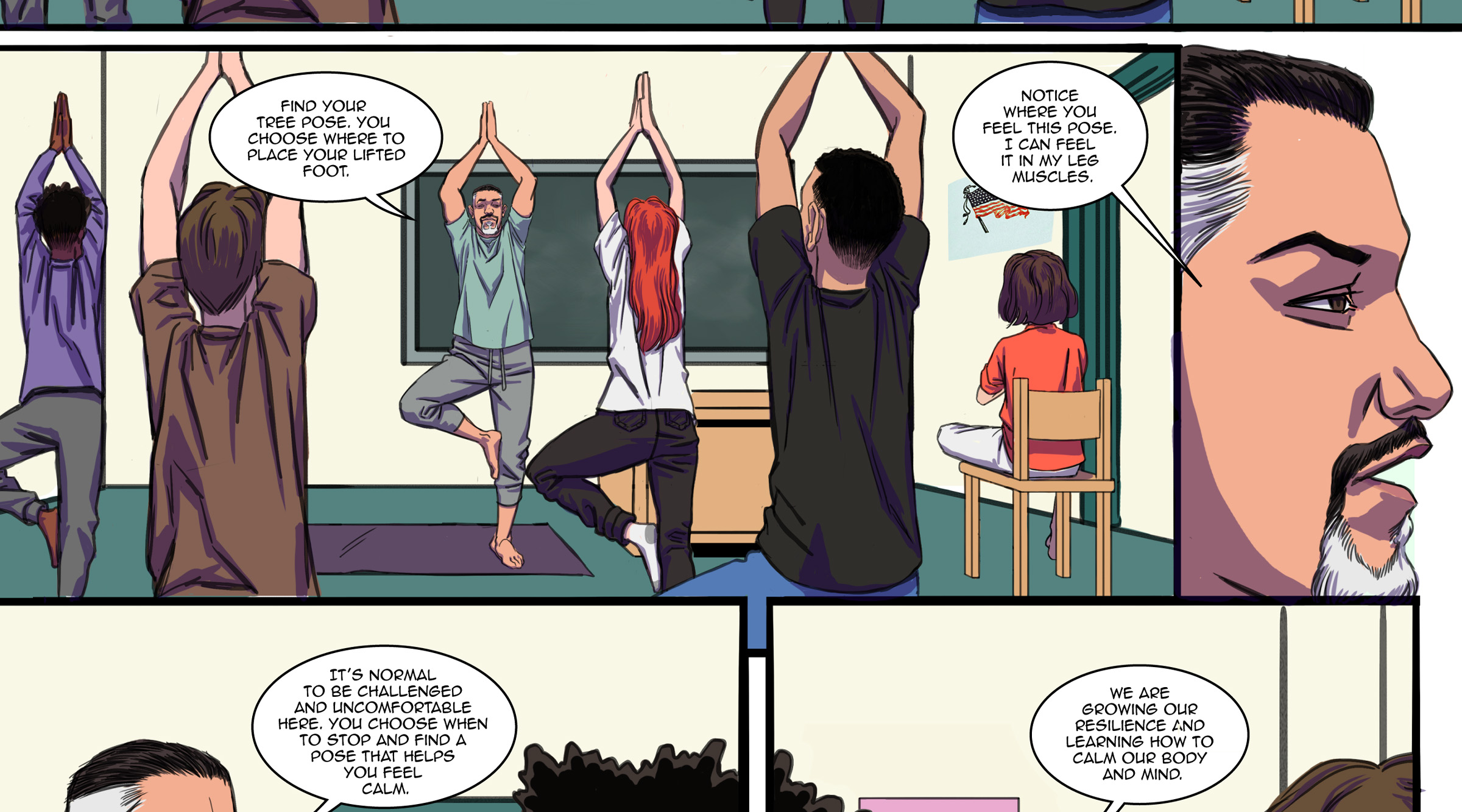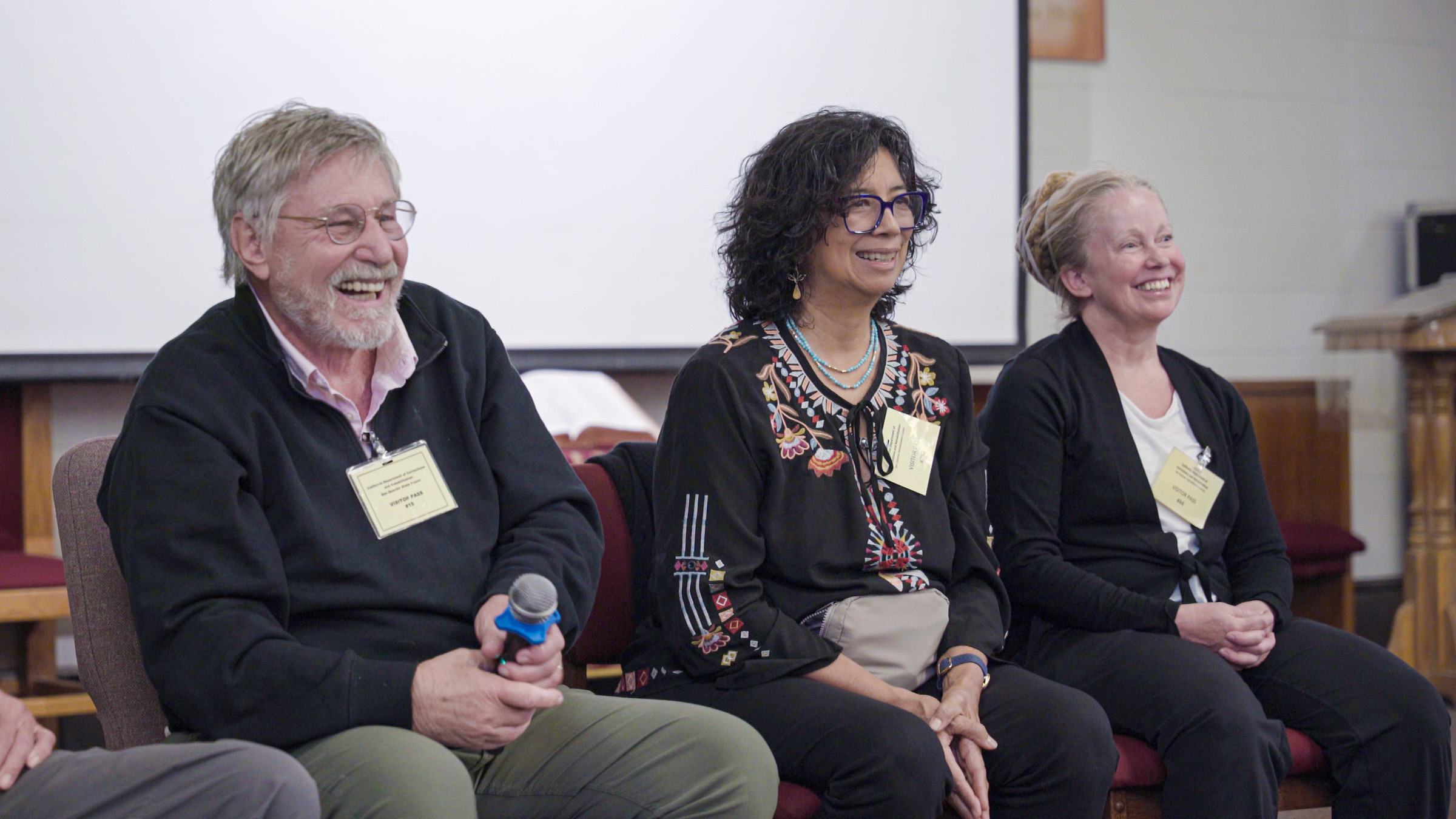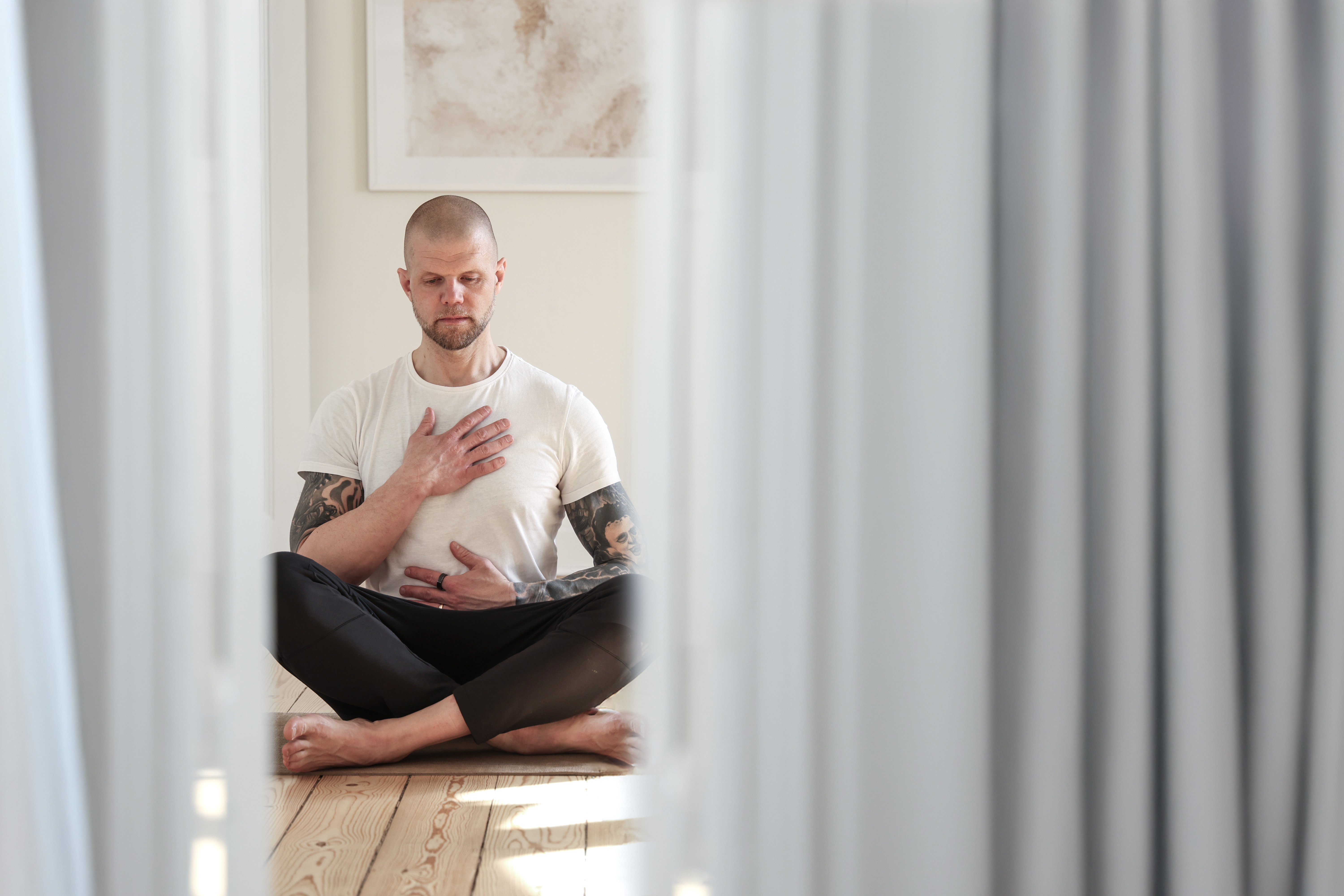Inside a correctional facility in New Hampshire, a group of women came together each week from June to December 2024—not just to stretch, breathe, or learn how to guide a yoga class, but to take part in something far more profound: a process of self-reclamation.
Fourteen women completed the Yoga, Social Justice, and Leadership 200-Hour Teacher Training program, facilitated by Prison Yoga Project (PYP)—an intensive, trauma-informed curriculum that offers more than yoga certification. It offers space for healing. It offers tools for resilience. And it invites deep reflection on who we are, who we’ve been, and who we are becoming.
A sample of graduate feedback from a post-program survey reveals an extraordinary arc of transformation—emotional, interpersonal, and deeply human.
For many of the women, yoga became a way to reconnect with parts of themselves long abandoned under the weight of trauma, addiction, and incarceration.
“Yoga is now an essential part of my daily routine. Each morning it helps to ground me, balance my mood and gives me positive energy that counteracts my depression symptoms. I was an IV drug user for 10 years and honestly didn’t know if I’d ever feel okay enough to wake up early and be motivated to face the world as a sober woman.”
These practices—breathwork, mindfulness, intentional movement—became more than techniques. They became lifelines. Graduates reported daily use of self-soothing tools to regulate stress and process emotions in ways that foster clarity rather than chaos. They began to trust their breath. To listen to their bodies. To choose their responses.
“When faced with conflict I have been able to focus on my breathing, use grounding techniques and communicate assertively rather than aggressively.”
“In high stress situations I have remained mindful of my surroundings, my body sensations, my emotions which helped to do one thing at a time and respond logically.”
As nervous systems settled, self-awareness deepened. Through the ethical teachings of yoga—Ahimsa (non-harm), Satya (truth), Asteya, (non-stealing), Brahmacharya (non-excess) and Aparigraha (non-attachment), and more—these women were invited into a new kind of accountability. Not the punitive kind enforced by the system, but a self-guided reflection rooted in dignity and compassion.
“Brahmacharya helps me focus on finding peace and happiness within myself instead of looking externally for these things. Aparigraha has helped me to let go of the person who I was and allow myself to become the person I am capable of being (my true self).”
“The Yamas have showed me the path of right words, thoughts, and action… The biggest one being non-harm. They have been a guideline for my everyday life.”
These teachings opened the door to genuine remorse—not rooted in shame, but in awareness. For many, understanding the impact of their actions and the pain they had caused others became an integral part of their healing.
“All of these principles have given me an entirely different outlook on life… I recognize and have a deeper respect for the pain I caused. I never want to be the cause of that pain again.”
Rather than remain defined by the label of “inmate” or “offender,” graduates began to author new narratives for themselves—ones grounded in responsibility, self-respect, and purpose. They spoke of the courage it takes to not only acknowledge past harm, but to move forward with the intention to serve others.
“I except [accept] where I’ve been and what I’ve done. I’ve made many amends and am working on rebuilding broken relationships.”
“I care about my future and I’m proud of the woman I’ve become—someone who’s honest, that wants to give instead of take.”
This journey of self-discovery bloomed outward. Nearly every graduate expressed confidence in their ability to teach, guide, and contribute to the well-being of others—some already doing so within their units or community groups.
“I have taught two yoga sessions to women on my unit and have brought in some chair yoga to a spiritual group I attend.”
“I go on speaking engagements… and I share with them the incredible impact that yoga has had on my life and how important it has been to embrace the strengths and inner power I have within me.”
This desire to give back, to use their growth as a tool for collective care, reflects a profound shift: from surviving, to serving. From silenced, to empowered. These women are not just transforming themselves—they are becoming leaders in a new kind of community healing.
“I want to teach others how they too can heal, strengthen their bodies, connect to themselves… through the practice of yoga.”
“We only can keep what we have by giving it away.”
Perhaps most powerfully, the program created a container where women could show up for themselves and each other—free of judgment, free of hierarchy, and full of empathy. This community of practice helped restore trust in relationships and built the foundation for mutual respect and emotional safety, so often missing in carceral environments.
“I loved this training because it incorporated more than a specific set of skills, it incorporated an entire lifestyle shift.”
“Developing my self-worth and confidence, learning to love myself and also let go of past hurts, shame, and guilt… learning to be free and happy & healthy both physically and mentally.”
“I am more gentle with myself. I will share with the supports I have and allow myself to cry. I remind myself that these feelings are not forever and allowing myself to feel them allows them to pass through.”
When asked if they would recommend the program to others, all respondents gave it a 10 out of 10. When asked if it had transformed their lives, they said, simply: yes.
“The YTT Program has quite literally changed my life in ways that are profound and lasting. You have helped to reawaken inner light, find strength within myself, and feel hopeful for my journey ahead. I thank you with all my heart.”
This is what’s possible when we create space for healing—not just as a service to individuals, but as an act of restoring humanity, rebuilding communities, and reimagining what justice can look like from the inside out.




